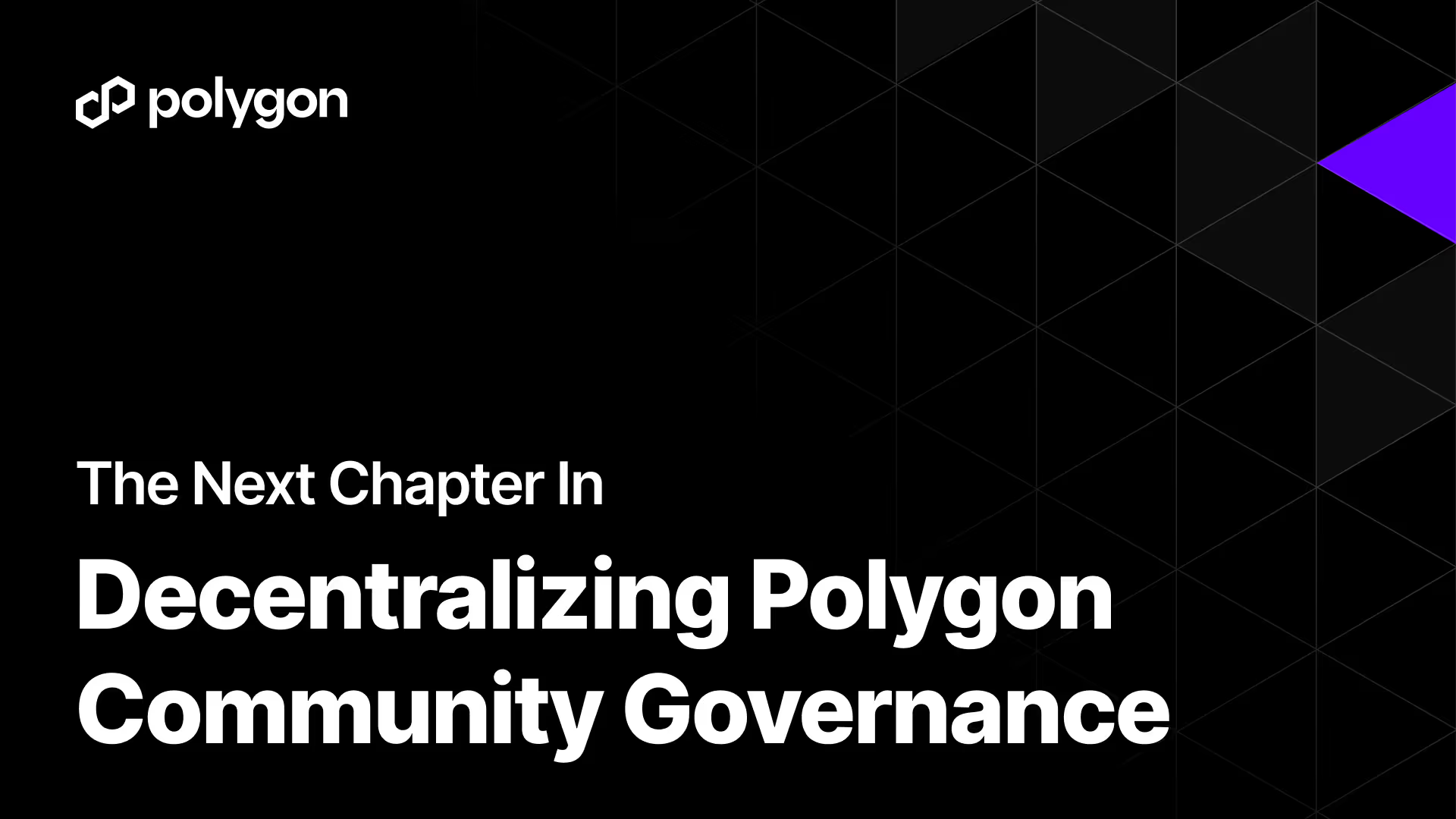
Decentralized Governance Goes Live on Polygon with POL Voting
Polygon Launches POL Governance: A New Era of Decentralized Decision-Making Begins
Meta Description:
Polygon introduces on-chain governance for staked POL holders via the Governance Hub, enabling decentralized voting, delegation, and real-time proposal tracking across the network.
Welcome to the Future of Polygon Governance
Polygon has officially unlocked a new chapter in its journey toward full decentralization. On November 8, 2024, the network launched the Polygon Governance Hub, a central platform where community governance is no longer an idea—it's a live, working system. For the first time, holders of staked POL tokens can actively participate in shaping the future of the Polygon ecosystem.
This pivotal upgrade empowers users to vote on key decisions, delegate voting power to trusted representatives, and monitor proposals in real time—all within a sleek, user-friendly interface. It’s not just a UI update; it’s a transformation in how governance, accountability, and innovation are handled across Polygon networks.
What Is System Smart Contracts Governance?
At the heart of this new system is System Smart Contracts Governance—a framework designed to manage critical infrastructure decisions without compromising security. Polygon, like other Layer-2 solutions, must balance upgradeability with network security. Smart contract governance enables this by introducing transparent, community-led oversight over changes to the system's foundational code.
Through this model, Polygon aims to ensure that all upgrades are made with broad community input and consensus. This prevents centralized decision-making while allowing the network to evolve quickly and securely.
Meet the Protocol Council: The Core of the Process
The decision-making process involves several participants, most notably the Protocol Council—a group of trusted technical experts and contributors. Here’s how the flow works:
Proposal Creation: Core contributors create proposals known as PIPs (Polygon Improvement Proposals).
Council Evaluation: The Protocol Council evaluates and formalizes these proposals on-chain.
Community Signaling: Staked POL holders can then signal their support or opposition by voting through the Governance Hub.
Final Execution: Although signaling is non-binding, the Protocol Council is expected to honor the collective voice of the community when enacting proposals.
This model preserves the speed and security of execution while remaining deeply democratic in spirit.
Key Features of the New Governance Model
Polygon's governance upgrade introduces several innovative mechanisms to enhance representation, participation, and decentralization:
Split Delegation
This feature lets users distribute their voting power across multiple delegates. Instead of assigning all influence to one person, holders can support different delegates based on their areas of expertise. This reduces centralization and promotes more nuanced governance outcomes.
Adaptive Quorums
Inspired by Polkadot’s Governance V1, adaptive quorums address voter apathy. When fewer people participate, the quorum requirements adjust to ensure that proposals can still move forward with fair representation. This dynamic approach maintains governance efficiency while encouraging community involvement.
Progressive Evolution
The system is designed to evolve. Based on community engagement and activity levels, governance parameters—such as quorum multipliers or delegation resets—can be fine-tuned. The roadmap even includes a future transition from off-chain signaling to full on-chain voting, making Polygon’s governance even more secure and autonomous.
Why Separate Governance Models Matter
Polygon emphasizes that governance should not be one-size-fits-all. For instance, System Smart Contracts Governance is distinct from the Community Treasury, and for good reason. The skills and responsibilities required to manage protocol infrastructure are very different from those needed to allocate funding for community projects.
Just like a local city council shouldn't manage national defense, each governance domain within Polygon is optimized for domain-specific expertise and community legitimacy. This separation ensures that decisions are informed, effective, and trusted by the broader ecosystem.
Polygon Governance Hub: Your Gateway to Web3 Participation
The Polygon Governance Hub is more than just a voting portal. It’s a comprehensive platform designed to streamline every aspect of governance for users—from newcomers to protocol veterans.
Key features include:
- Live Proposal Tracking: Follow all active and past PIPs with full transparency.
- Educational Tools: Access guides, tutorials, and explainers to understand the governance process.
- Integrated Experience: Vote, delegate, or comment without leaving the hub.
- Built with the Community: Designed in collaboration with contributors and stakeholders across Polygon.
Whether you're a passive supporter or an active participant, the Governance Hub provides everything you need to get involved.
Visit: https://governance.polygon.technology
What’s Next for Polygon Governance?
This launch marks the beginning of a long-term vision for community-driven development. In the near future, the system will expand to include shared AggLayer components, allowing users to vote on decisions that affect not just individual protocols, but the larger interconnected ecosystem.
The future of Web3 hinges on transparent, inclusive governance. With this initiative, Polygon takes a bold step toward making that future a reality. The tools are live, the community is ready—and the network is open for your voice.
Conclusion: Your Vote, Your Network
Polygon is no longer just a fast, scalable Ethereum Layer 2—it's a living, breathing ecosystem governed by its community. Through the Governance Hub, your vote matters more than ever. Whether you choose to delegate or vote directly, your participation helps define the next phase of innovation for Web3.





